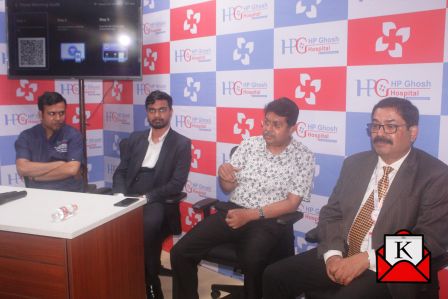HP Ghosh Hospital Introduces The First Smart ICU In Kolkata


The Intensive Care Unit (ICU) will now pair smartphones with its systems. Even though doctors diagnose critically ill patients by seeing them in person, they may be able to securely obtain information about the patient’s physical status over the phone if needed immediately. If required, plans can be made right away, making it considerably simpler to stabilize the patient. At Salt Lake’s HP Ghosh Hospital, the first Smart ICU in Kolkata and Eastern India has begun operations.
Mr. Somnath Bhattacharya, Chief Executive Officer of the hospital, has said that due to the continuous care of specialist doctors, the risk of death for complex patients will decrease by almost 40%. This leading hospital of the Eastern India Heart Care and Research Foundation, which uses the most modern technology in Kolkata and Eastern India first, has promised to provide the best treatment to common people. This Smart ICU will be supervised by Dr. Hirak Bhattacharya and Dr. Trinanjana Sarengi, the renowned critical care specialists.
Dr. Hirak Bhattacharya has said that critical care is called for doctors to combat emergencies to save the lives of critically ill patients. If any major organ’s function is temporarily impaired due to a critical illness, the patient is kept in the Critical Care Unit.

Utilizing cutting-edge technology to remotely monitor patient conditions is the primary objective of the Smart ICU. Special alerts will immediately notify top consultants, ICU-duty doctors and nurses, and other staff members when a patient’s health worsens. Simultaneously, the attending physician’s mobile device will display the patient’s current parameters and test results. The physician can give the resident doctor instructions over the phone even if they are not there at the patient’s bedside. Timely treatment will be beneficial to the patient. In many situations, a smart intensive care unit can improve patients’ general health rates. The smart ICU has 43 beds when it first opens in the first phase.

A great initiative to cater to the needs of critically ill patients.
Priyanka Dutta
